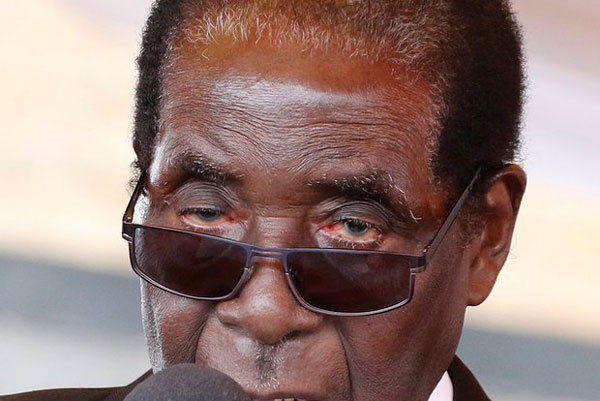
Finance minister Patrick Chinamasa presents his mid-term fiscal policy review today amid expectations he will review growth projections and the size of the 2016 budget due to the underperformance of the economy in the first half of the year.
NewsDay Editor
Last year, Chinamasa projected the economy to grow by 2,7% in 2016 underpinned by a growth in agriculture.
Of the $4 billion budget projected by Chinamasa, total revenues were estimated to provide $3,85 billion, with the remainder ($150 million) to be raised through borrowing from the domestic market.
The underperformance of the economy in the first half of the year means that the $3,85 billion projection will not be met. Statistics showed that the Zimbabwe Revenue Authority missed its targets in the first half of the year after collecting $1,65 billion against a target of $1,75 billion, a reality check for Treasury that all is not well.
Despite the low inflows, recurrent expenditure in the form of the wage bill has remained constant putting pressure on government. So tough was the situation in the first half of the year that Treasury could not come up with reliable pay dates.
The central government and grant-aided institutions’ combined wage bill constitutes 66% of total expenditure. Of that, there are ghost workers, which government has struggled or is unwilling to flush out, as they continue “eating what they have not killed”.
- Chamisa under fire over US$120K donation
- Mavhunga puts DeMbare into Chibuku quarterfinals
- Pension funds bet on Cabora Bassa oilfields
- Councils defy govt fire tender directive
Keep Reading
Government’s commitment to reduce that combined wage bill to 50% by 2019 has already been dismissed by experts, as Zanu PF is facing a crucial election a year earlier.
Known for its populism, there are fears that the wage bill could be expanded and more ghost workers – the infrastructure of Zanu PF’s rigging machinery — would be added on the payroll.
These are the realities Chinamasa faces and his measures have to steer clear of populism. To his credit, Chinamasa has been an island in a sea of confusion in the ruling party.
But how his measures are to be effected depends on his principal, President Robert Mugabe, who is struggling to deliver on his electoral promises. It’s a tough call for Chinamasa to balance the interests of the economy and those of his party.
The resistance Chinamasa faced in his re-engagement with international financial institutions is ample evidence that the hawks in Zanu PF don’t want painful reforms to reshape the economy, as such an exercise will remove the privileges they have been accustomed to since 1980.
But Chinamasa has a job to do and should get on with it in spite of the political pressures.
The international financial institutions will be keenly looking at his policy to check whether he is walking the talk on the reforms promised to accompany the clearing of arrears to the preferred creditors – the World Bank, International Monetary Fund and the African Development Bank.
The nation wants answers on how the economy will be extricated from the crisis. Company closures have continued unabated throwing thousands onto the streets. Those that remained on the job are struggling to get their salaries creating a new class — the working poor.












